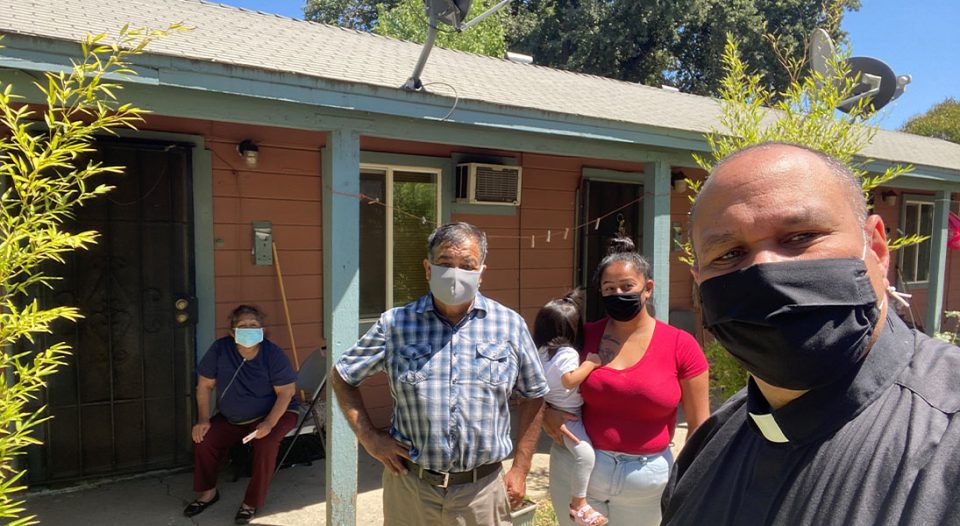In this season of Easter, we are reminded once more of Christ’s victory over the forces of death. Since the COVID-19 pandemic started in spring 2020, however, death has been top of mind for many. Migrant families living in California’s Central Valley, which I serve through my current call, especially faced widespread loss last year, in both their families and their livelihoods. Work hours and incomes dropped. And 56% of California’s COVID-19 cases—46% of all state deaths due to COVID-19—were among the Latinx community.
Hope arrived in the form of statewide and supplemental grants. Faith in the Valley, a multifaith and multicultural organization, secured outside funding to create the California Immigrant Resilience Fund (CIRF). Given my ministry within the migrant population, I was invited by Faith in the Valley to manage and distribute these funds. Since June 2020, the organization has been granted $1.2 million to assist migrant families. More than 800 families in Central Valley have been helped through our ministry—a sign of new life in our midst.
One of those recipients of financial assistance is Doña Josefa Castillo, a 65-year-old migrant worker from Mexico who was infected with COVID-19 in summer 2020. She lives alone, has no health insurance and wasn’t able to access the financial aid provided by California. Concerned for her well-being, Josefa Castillo’s landlord reached out to community leaders for help.
Throughout this pandemic, I have seen deep grief. I have also witnessed Christ’s life-giving presence in the community, a reminder that God does not abandon us in our trials.
My friend Luis Magaña, coordinator for a migrant workers’ rights organization, first told me of Josefa Castillo’s situation. An immigrant and a former agricultural worker himself, Magaña has been my guide to the challenges the migrant community experiences in this region. For the last three years, we’ve written petition letters advocating for the prioritization of migrant workers for vaccination and PPE; we’ve distributed masks and hand sanitizer in the fields, marched for migrant rights and against ICE and deportations, and identified migrants who, like Josefa Castillo, had been affected by COVID-19 and needed financial aid.
Magaña shared that Josefa Castillo’s rent was three months past due. She had not been able to work for several weeks given her need of an oxygen mask due to COVID-19 side effects. As soon as I learned her story, I worked with CIRF to bring $1,750 of relief funding directly to her.
When Magaña and I visited Josefa Castillo, she was sitting on her doorstep, wearing her oxygen mask. Her face lit up, and she said she was happy to see a member of the clergy. After delivering her gift, I blessed and prayed for her. She told us that she had been praying for help, and that God has come to visit her through our presence and the community’s support.
Throughout this pandemic, I have seen deep grief. I have also witnessed Christ’s life-giving presence in the community, a reminder that God does not abandon us in our trials. In the case of Josefa Castillo, God sent angels, in the form of her landlord, Magaña, Faith in the Valley and others, to remove the stone of despair that was affecting her.
Who will roll away the stone for us? Christ, the one who has shown us the way of life: communal solidarity through a faith active in love.




